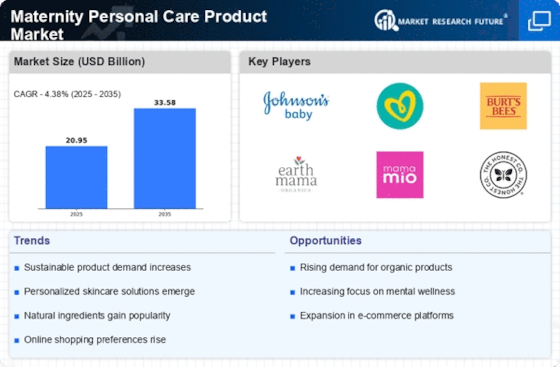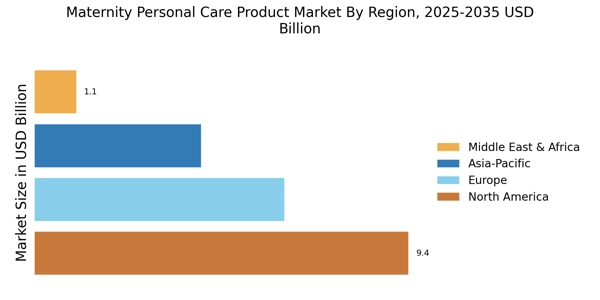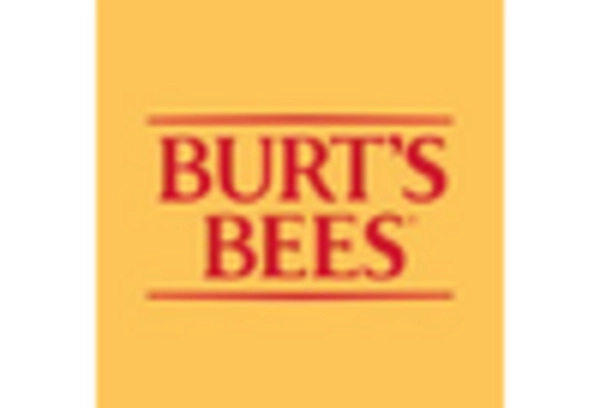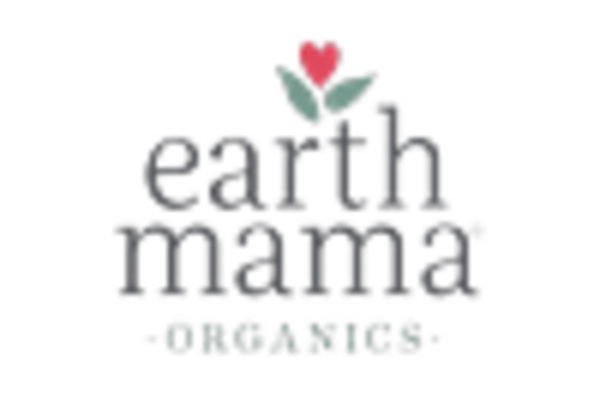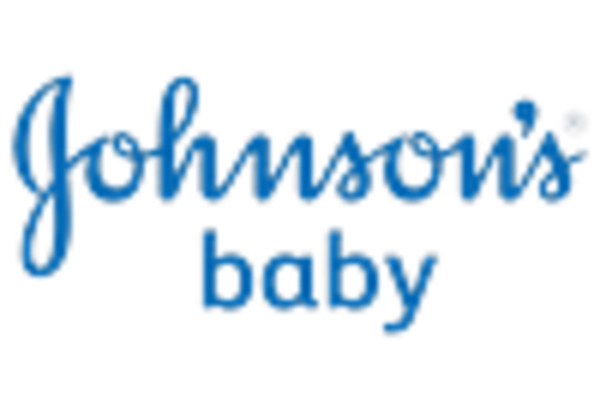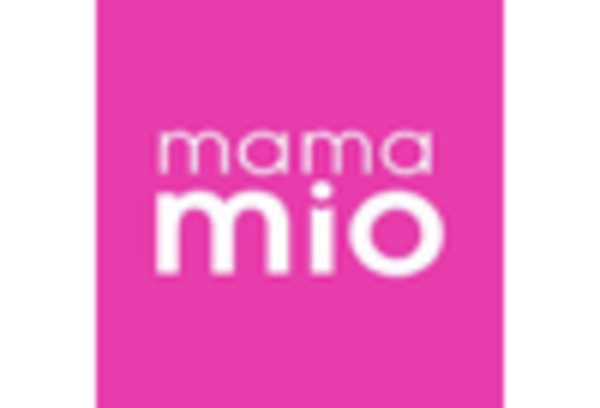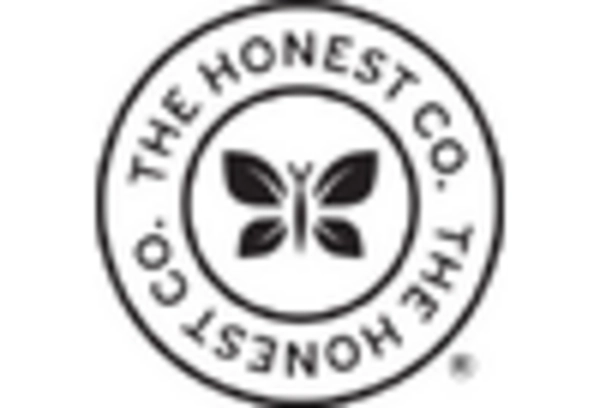Increasing Awareness of Maternal Health
The growing awareness surrounding maternal health is a pivotal driver for the Maternity Personal Care Product Market. As expectant mothers become more informed about the importance of self-care during pregnancy, the demand for specialized personal care products is likely to rise. This trend is reflected in the increasing number of educational campaigns and resources available to pregnant women, emphasizing the significance of using safe and effective products. According to recent data, the maternal health market is projected to grow at a compound annual growth rate of approximately 6.5% over the next few years, indicating a robust interest in products that cater to the unique needs of mothers-to-be. This heightened awareness not only influences purchasing decisions but also encourages brands to innovate and expand their offerings in the Maternity Personal Care Product Market.
Rising Disposable Income Among Consumers
Rising disposable income among consumers is a crucial driver for the Maternity Personal Care Product Market. As economic conditions improve, more families are willing to invest in premium personal care products that cater specifically to the needs of pregnant women. This trend is particularly evident in emerging markets, where an expanding middle class is increasingly prioritizing health and wellness. Market Research Future indicates that the premium segment of the maternity care market is expected to grow by approximately 7% annually, as consumers seek high-quality products that offer added benefits. This willingness to spend on maternity personal care products not only enhances brand loyalty but also encourages manufacturers to innovate and diversify their product lines within the Maternity Personal Care Product Market.
Shift Towards Organic and Natural Products
The shift towards organic and natural products is transforming the Maternity Personal Care Product Market. Consumers are increasingly seeking products that are free from harmful chemicals and synthetic ingredients, favoring those that utilize natural components. This trend is driven by a growing understanding of the potential risks associated with conventional personal care products during pregnancy. Market data suggests that the organic personal care segment is expected to witness a growth rate of around 8% annually, as more brands respond to this demand by formulating products that align with these preferences. Consequently, the Maternity Personal Care Product Market is likely to see an influx of innovative offerings that prioritize safety and sustainability, appealing to health-conscious consumers.
Influence of Social Media and Online Communities
The influence of social media and online communities is reshaping the Maternity Personal Care Product Market. Expectant mothers are increasingly turning to social media platforms for advice, recommendations, and product reviews, which significantly impacts their purchasing decisions. This trend has led to the emergence of online communities where mothers share experiences and insights about various maternity care products. Data suggests that nearly 70% of consumers rely on social media for product information, highlighting its role in shaping consumer behavior. As brands recognize the power of social media marketing, they are likely to invest more in digital campaigns and influencer partnerships, thereby enhancing their visibility and reach within the Maternity Personal Care Product Market.
Technological Advancements in Product Development
Technological advancements in product development are significantly influencing the Maternity Personal Care Product Market. Innovations in formulation techniques and ingredient sourcing are enabling brands to create more effective and safer products for expectant mothers. For instance, the use of biotechnology in developing skin care formulations has led to the creation of products that are not only effective but also gentle on sensitive skin. Furthermore, the integration of digital tools in product testing and consumer feedback mechanisms is enhancing the overall quality and efficacy of maternity care products. Market analysis indicates that the adoption of such technologies could lead to a 10% increase in product efficacy ratings, thereby boosting consumer confidence and driving sales within the Maternity Personal Care Product Market.


